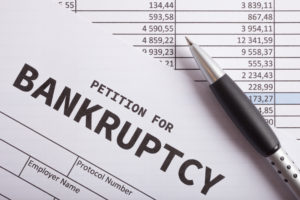When to Declare Bankruptcy
These days, the economic pressures we face are greater than ever before. As a result, bankruptcy is becoming more and more common. If you are behind on your mortgage payments, credit card bills, and/or a multitude of other debts, it can feel like the walls are closing in around you.
It is important to realize that there are professionals who can assist you as you navigate this challenging period. When you tackle this obstacle by yourself, it can be difficult to figure out whether or not bankruptcy is the right choice. In addition, knowing when to declare bankruptcy is important, and there are a number of factors that go into this decision-making process.
First, What is Bankruptcy?
There are a few different types of bankruptcy available to you. All of these different types are listed under title 11 of the United States Code, which is also known simply as the Bankruptcy Code:
- Chapter 7: Liquidation – This type of bankruptcy is available for individuals and businesses who cannot pay their debts. After a trustee liquidates all of your non-exempt assets, you will no longer be liable for your debts. Note that certain types of debt cannot be discharged, such as student loans. In addition, some of your assets are typically exempt from liquidation, such as your home.
- Chapter 11: Reorganization – This type of bankruptcy is for businesses. A bankruptcy court will assess the financial state of the business and approve a reorganization plan. This includes plans for repayments and the prioritization of certain debts.
- Chapter 12: Family Farmers and Fisherman – This type of bankruptcy is only available for people whose primary income comes from a family-owned farm or fishing business. Once an individual files for chapter 12 bankruptcy, they can repay their debts over a manageable period of time.
- Chapter 13: Debt Adjustment – Chapter 13 allows individuals with future income to repay all or part of their debts over a designated period of time set forth by the bankruptcy court. For the most part, this period is limited to three to five years. At the end of that period, most debts are discharged. Individuals are only eligible for Chapter 13 bankruptcy if the amount owed is less than specific dollar amounts set forth in the Bankruptcy Code.
Do I Need a Lawyer to File for Bankruptcy?
The Bankruptcy Code is complex, and it is filled with numerous provisions and details that you must follow closely. Because of this, it is highly advisable that you seek out a qualified attorney who can help you with this process.
A lawyer can also help limit the impact of bankruptcy on your life. For example, lawyers can help you understand which of your assets are not eligible for liquidation. This ensures you keep hold of your home, your retirement accounts, and essential items like your clothes and vehicle.
In addition, an experienced attorney can handle the extensive amount of paperwork involved with the bankruptcy process. While it is true that you can technically file for bankruptcy by yourself, most individuals are quite busy dealing with other aspects of their life during their financial crises.
Who can Help Me Decide Whether to Declare Bankruptcy?
If you need to figure out whether it is the right time to file for bankruptcy, book a consultation at the Law Offices of Johnson, Sclafani & Moriarty in West Springfield, Massachusetts. This qualified team of professionals can guide you through the bankruptcy process and help you decide whether or not this is the right choice for you. Reach out today for help during these difficult times. 413-732-8356
